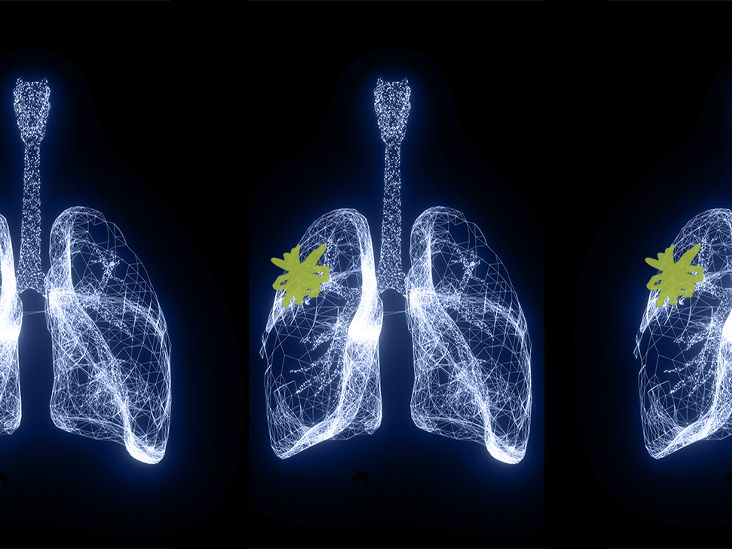Lung cancer is the leading cause of cancer death worldwide, with 1.8 million deaths attributed to the disease each year. Only 16% of people with lung cancer receive an early diagnosis, which significantly impacts survival rates. Researchers at the Massachusetts Institute of Technology (MIT) have developed a new method to detect lung cancer in its early stages using an inhaler and a urine test. This innovation could potentially improve outcomes for patients by allowing for earlier detection and treatment.
The current standard for lung cancer screening is the low-dose computed tomography (CT) scan, but this method can produce false positives or negatives. The new technology developed by MIT researchers involves using nanoparticle sensors that are inhaled through an inhaler or nebulizer. These sensors are coated with a DNA barcode and act as “nano-detectives” in the search for lung cancer-associated protease signatures. By patrolling the lungs and releasing DNA barcodes into the bloodstream, these sensors can provide information on the presence of lung cancer, which is then detected in urine samples.
Access to CT scans for lung cancer screening is limited in certain parts of the world, making this inhaler screening test a potentially valuable alternative. The new screening method was tested on a mouse model genetically engineered to develop lung tumors similar to those seen in humans. Through various experiments, researchers identified four specific sensors that were able to accurately detect early-stage lung cancer tumors. The research team plans to further test these sensors on human biopsy samples and eventually conduct clinical trials on humans to evaluate the effectiveness of the test.
Dr. Michael Spallone, a thoracic surgeon at Hackensack University Medical Center, expressed excitement about the potential of this new technology to improve outcomes for lung cancer patients. He highlighted the simplicity and ease of the proposed test, which involves using an inhaler and a urine test, making it more accessible and comfortable for patients. Spallone emphasized the importance of early detection in improving outcomes for lung cancer patients and expressed optimism about the future potential of this new screening method. Further research and clinical trials are needed to validate the effectiveness of the test in humans.
The innovative approach to detecting lung cancer at its earliest stages using an inhaler and urine test offers a promising new tool in the fight against the disease. Early diagnosis is crucial in improving outcomes for lung cancer patients, and this new technology could potentially revolutionize screening methods and improve access to testing for at-risk populations. Research is ongoing to optimize the nanosensor probes and conduct further preclinical studies before moving forward with clinical trials in humans. The potential impact of this new screening method on improving outcomes for lung cancer patients is significant, and further research is needed to fully understand its effectiveness and potential for widespread use.


